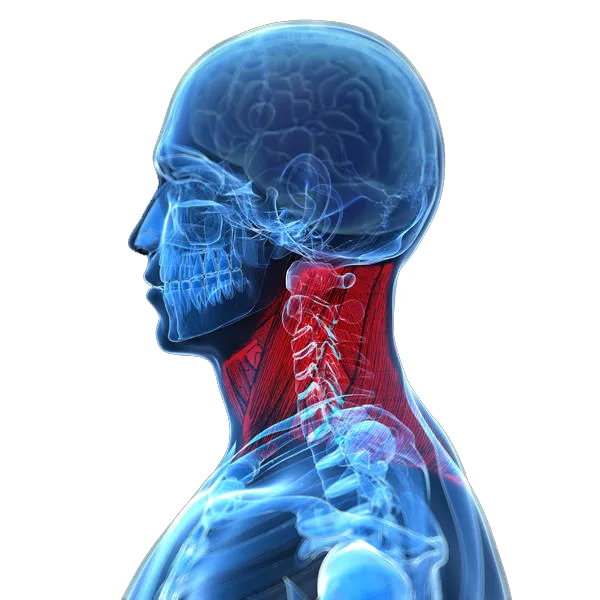Top 10 Health-Related Questions to Ask During the College Sports Recruiting Process
Date: April 24, 2022
College sports recruitment can be a cumbersome endeavor, with many intricacies to navigate. However, one of the most important things to prioritize throughout the process is an athlete’s health and safety should they be lucky enough to land a spot at their dream school playing their favorite sport.
Many college athletes will be leaving home to pursue their sport, therefore, it is important to ask the right questions about their health and safety before they step foot on the field. As you may be uncertain about the right questions to ask, here are 10 of the most important health-related questions to ask the coach and relevant staff at the recruiting college.
1. Do You Have A Screening Protocol For Baseline Concussion And Injury Risk?
Concussions are a form of traumatic brain injury that are usually caused by a hit to the head, and hence are fairly common while playing sports.
Given the commonality of collisions during sports, it is imperative that athletes with previous head injuries take precautions when playing contact sports in order to protect themselves against getting another one.
While it may not seem like a danger to some, concussions can have serious, sustained, or even fatal consequences. Therefore, for the safety of players, college sports teams should have baseline concussion and injury risk tests.
These screening protocols are a sequence of cognitive and physical tests that assess healthy brain function during the preseason, thus before an injury. In the event of a concussion, the results of these tests can be used as a means of comparison to help the healthcare professional diagnose the severity of the concussion and develop a sound return-to-play protocol.
Due to the above reasons, this question is important to ask coaches and trainers during the recruiting process as it will help in the diagnosis of the concussion and in the development of a treatment plan.
2. What Is Your Return To Play Protocol Post-Concussion?
A good college sports program will have specific return-to-play guidelines to ensure their athlete's safety in the event of a head injury. Some of the post-concussion protocols to look out for are as follows:
- Any athlete recovering from a concussion should be consistently monitored and assessed by a healthcare provider.
- It is also important that the healthcare professional collaborates with the college team's licensed athletic trainer to ensure ample communication about the player’s status.
- Similarly, the coach or trainer needs to keep the athlete’s parent(s) or guardian(s) well informed about concussion symptoms.
- An athlete should only return to training if they have been cleared by the healthcare provider with a gradual return-to-play plan starting with symptom-limited activity and ending with full-contact practice and normal game play.
Therefore, it is vital to ensure that the college has a sound return-to-play policy in place with all of the above-mentioned points to ensure the athlete’s safety is not being compromised.
3. What Is The Daily Or Weekly Schedule For A Player During The Season?
Upon asking a coach this question, you will learn how packed a college athlete’s schedule is and how strenuous it is to balance a major along with a college sports career.
A good college sports program will have strategies to help their athletes succeed in all aspects of their college journey and will be concerned about their mental, physical, as well as educational well-being.
Therefore, the coaching staff and trainers should provide all the help that a player needs during stressful in-season times, and should be understanding of academic burdens throughout the school year.
4. Do You Have a Concussion Risk Mitigation Strategy?
Concussions or traumatic brain injuries are exceedingly common among athletes. A concussion risk mitigation strategy aims to eliminate risks of concussion incidences and their severity. This strategy should include preventative measures, such as protective gear and dynamic neck training.
Concussions can pose serious and even fatal health effects, such as brain bleeding and swelling which can lead to long lasting symptoms or permanent brain damage. Thus, a well thought out strategy is vital as it minimizes the occurrence of concussions and ensures athlete safety.
Due to the reasons outlined above, this question is critical as it will show if the college has a comprehensive approach to concussion risk management and if they are reliable when it comes to athlete health and safety.
5. What Healthcare Professionals Does The Team Have Access to?
This question is essential to determine whether sports healthcare is a priority for the college sports program and whether immediate medical attention will be available in the event of an injury.
A strong group of healthcare professionals will work collaboratively with the athletics department to provide accurate medical advice, injury rehabilitation strategies, and emergency medical attention.
A well-curated healthcare team must have an athletic trainer, physiotherapist, and primary care physician. If the primary physicians are not available, the college must consult the team physician or local hospital at once.
6. How Qualified Are the Available Athletic Trainers?
Athletic trainers are recruited to provide medical services to athletes during practice and competition. These services range from injury prevention and clinical evaluation to the recovery of injuries. Athletic trainers are very important to the health of the student-athletes; therefore it is vital that they be highly qualified and skilled.
Thus, during the recruitment process, it is important to ask about the qualifications of the team’s athletic trainers as they play a pivotal role in the treatment of injuries which can sometimes alter the trajectory of an athlete’s career.
7. What Does The Student-Athlete Health Benefits Package Look Like?
Healthcare tends to be financially straining, especially when attending college in a different country and with competitive sports, injuries are inevitable. Fortunately, all schools will offer health insurance for their athletes in order to fulfill the NCAA’s injury insurance program prerequisite.
Asking this question during the recruitment process is beneficial in order to understand how much of the medical bills will be covered by the school depending on the injury. This allows for payment and supplemental insurance planning ahead of time, eliminating panic regarding monetary issues during an injury.
8. What First Aid Protocols are In Place?
First aid protocols corroborate prompt and appropriate responses during challenging situations. They establish strategies for timely reporting on incidents and injuries and set damage-control procedures in motion.
Knowing first aid protocols can assist in providing immediate aid to injured people, increase safety awareness, and save lives. It is essential to get familiarized with such protocols as a precautionary measure.
9. What Best Practices Are In Place to Help Student-Athletes With Their Mental Health?
Unfortunately, the mental health of student-athletes is mostly a disregarded aspect of their athletic performance. With regular classes and the added pressure of playing a high level sport, student-athletes can find themselves dealing with a myriad of mental health issues which can continue long after their college sporting career.
On-campus help such as counseling and therapy must be available to help athletes cope with these difficulties. These practices are designed to ensure a safe environment for student-athletes to express their feelings and worries as well as to provide accurate and timely treatment. Coaches and team staff should also create an accepting and open environment to discuss such issues so that they don’t go untreated for fear of judgment from their team.
It is therefore important to inquire about the resources in place to help student-athletes manage mental health struggles.
10. Is There a Protocol for Injuries Sustained After Graduation?
A student-athlete can face several injuries when playing for their team which may seem harmless at the moment, but that can make athletes prone to future injury or chronic pain.
A good college sports program is likely to have a proper protocol for injuries sustained after graduation and this protocol can include extended health insurance as well. Hence, it is a crucial question to ask in order to understand the integrity of the program, as well as the benefits of choosing a particular school.
Overall, the college sports recruitment process can be taxing, however, it is important to never forget about the importance of student-athlete mental and physical health. The above-listed questions are a good starting point for the comparison of different college programs and their emphasis on athlete health.


